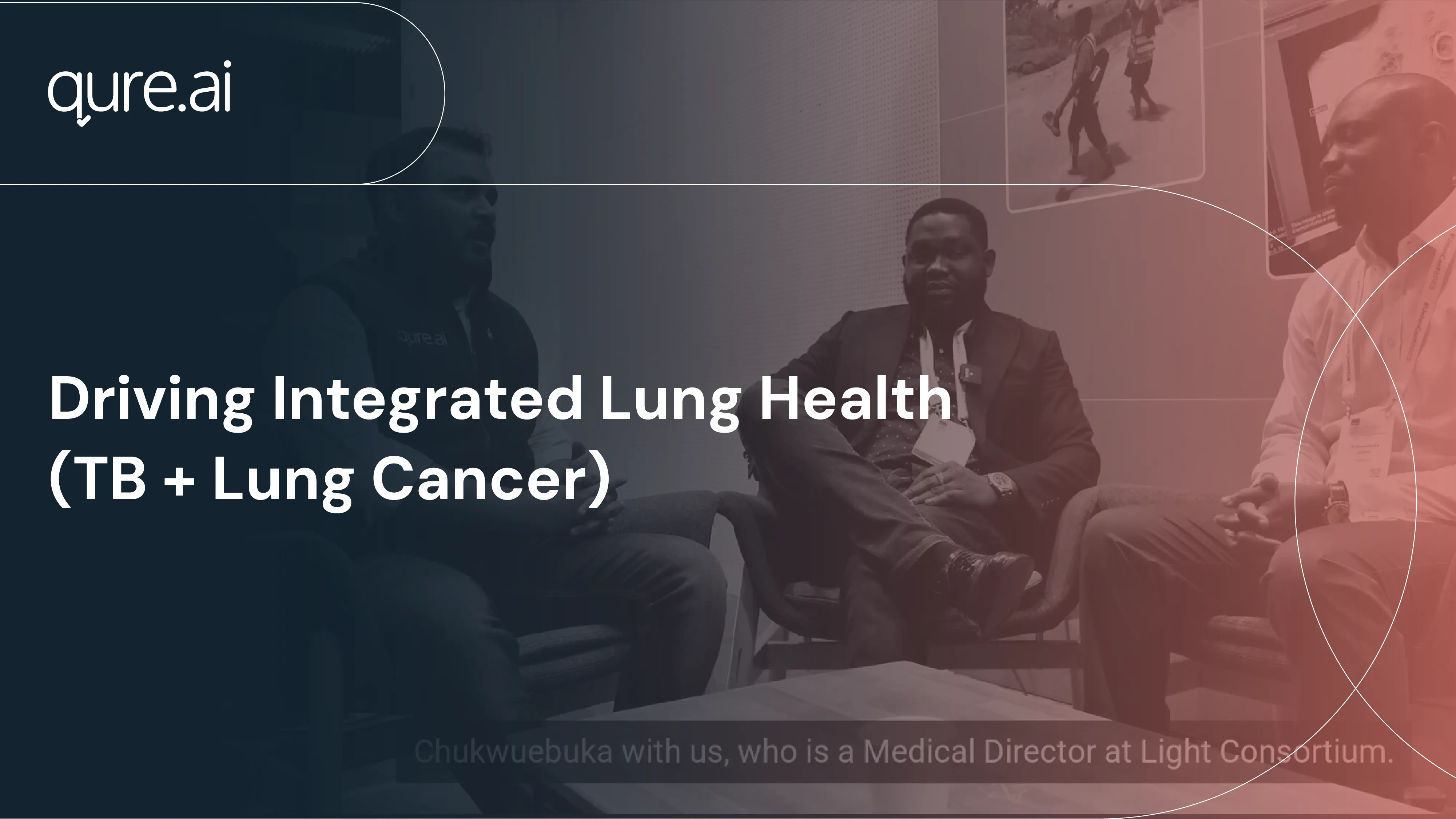With a population of over 200 million, Nigeria faces significant challenges in access to quality healthcare services. With only around 300 registered radiologists, technology is crucial to bridge the gap between service access and quality.

Back
In a discussion moderated by Ankit Modi, founding member and head of Products at Qure.ai, Arinze Ajogwu, M&E Specialist, Caritas Nigeria and Dr Chukwuebuka Ugwu, Researcher, Light Consortium, explore the impact of AI integration in their TB screening programs in Nigeria.
Challenges in Current TB Screening Programmes:
Dr. Chukwuebuka and Arinze highlight the challenges faced in Nigeria's current TB screening programs. With a high population and limited access to healthcare services, the inadequate number of radiologists, primarily in tertiary hospitals in big cities, poses a significant barrier. This leads to challenges in turnaround time for screening results and treatment initiation, resulting in missed opportunities and deaths due to obstacles in accessing care.
Impact of AI on TB Screening Programmes:
The integration of AI in TB screening programs has had a notable impact, as discussed by Arinze and Dr. Chukwuebuka in response to Ankit Modi's inquiries. The turnaround time for screening results has been reduced from days to minutes, significantly improving the process's efficiency. Moreover, AI has improved health equity by bringing services to villages and remote areas, reducing patient costs by eliminating the need to travel to distant hospitals. This has contributed to preserving the lives and livelihoods of breadwinners and families.
Integrated Screening for Pulmonary and Cardiac Issues:
Dr. Chukwuebuka and Arinze discuss the identification of the need to address non-TB pulmonary issues during TB outreaches. Using Qure.ai's technology, they have been able to detect and diagnose pulmonary and cardiac abnormalities, leading to a successful pilot in. The pilot revealed a high prevalence of cardiac problems linked to high salt content in the environment, prompting advocacy and support from the government for an integrated screening approach.
Importance of AI Platform and Support:
Dr. Chukwuebuka and Arinze emphasize the significance of a digitalized workflow and operational platform over minor accuracy differences, a point further explored by Ankit Modi. The successful deployment of Qure's offline solution in remote areas with limited infrastructure has been crucial. The high concordance between AI and radiologist interpretations, coupled with the exceptional product support and customer service from Qure.ai, has enabled seamless integration and adaptability of the technology.
Prospects and Scalability:
Looking ahead, Dr. Chukwuebuka and Arinze highlight the need for more mobile X-ray units and expanded AI algorithms to cover a broader range of conditions. They see the potential for Qure.ai to develop monitoring solutions for non-TB patients, including Non-Communicable Diseases (NCDs), Chronic Respiratory Diseases (CRDs), and Cerebrovascular Diseases (CBDs). With the high potential for scalability in Nigeria and evidence of impact in hard-to-reach areas, the integration of AI in TB screening programs can contribute to reducing the double burden of communicable and non-communicable diseases in the country.
The integration of AI in TB screening programs in Nigeria has demonstrated significant improvements in access, turnaround time, and quality of care. The success of the integrated approach for pulmonary and cardiac issues highlights the potential for AI to address a broader range of health challenges in resource-limited settings. With continued collaboration, support, and innovation, as emphasized by Ankit Modi, Dr. Chukwuebuka, and Arinze, AI-driven solutions like those provided by Qure.ai have the potential to transform healthcare delivery and outcomes in Nigeria and beyond.